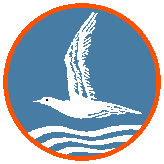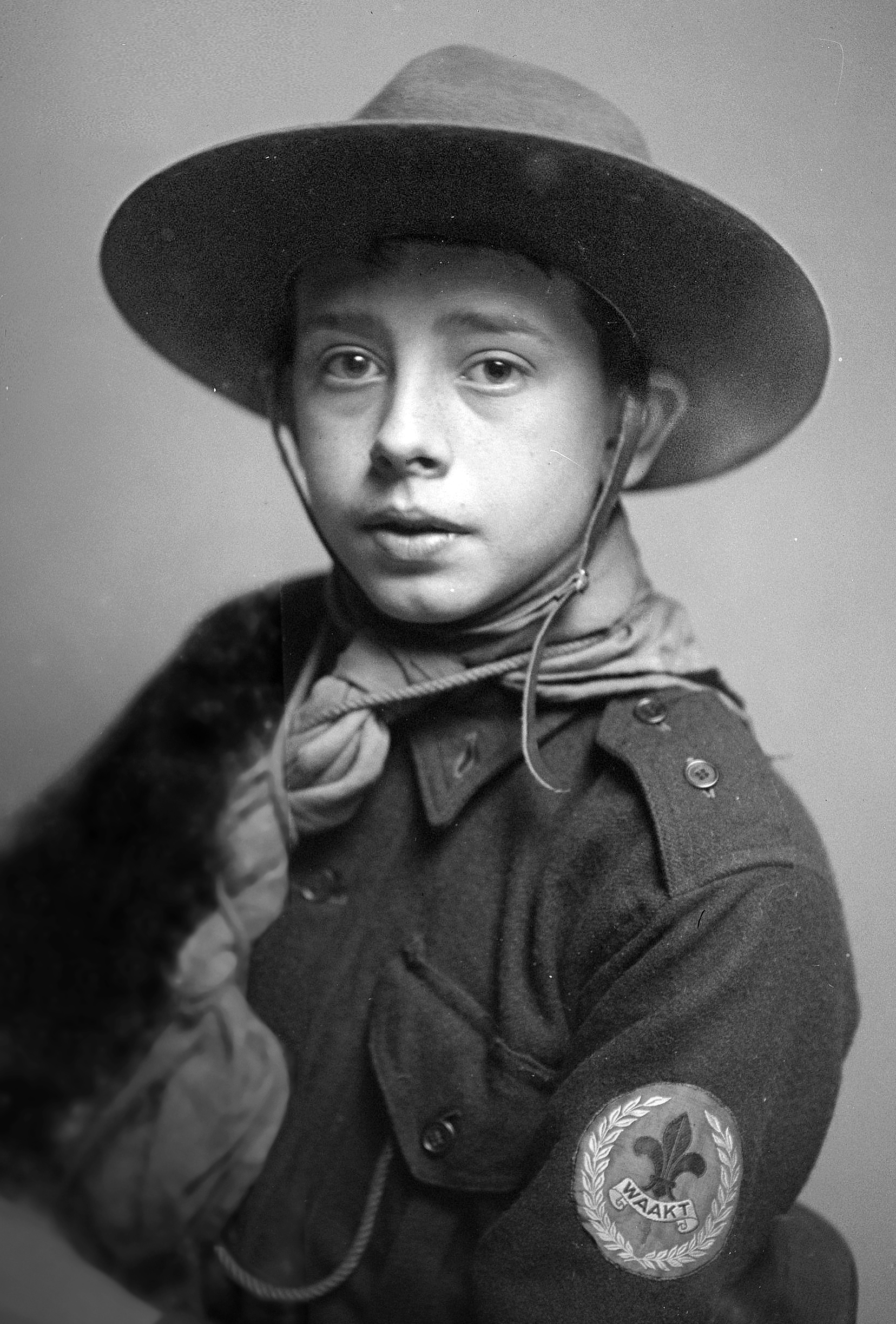|
Nationale Jeugdstorm
The ''Nationale Jeugdstorm'' (English language, English: National Youth Storm; NJS) was a Dutch youth movement associated with the National Socialist Movement in the Netherlands (NSB) that existed from 1934 to 1945, organized as the Dutch equivalent of the German Hitlerjugend and as a Nazism, Nazi counterpart of Scouting Nederland, Scouting and Guiding in the Netherlands. Formation The organization was formally separate, but had very close links with the National Socialist Movement in the Netherlands, NSB. The director was the leading NSB member Cornelis van Geelkerken. On May 1, 1934, Van Geelkerken was dismissed as a government official because NSB membership was deemed incompatible with employment with the government. On that same day, he founded the Nationale Jeugdstorm. On February 1, 1936, the Nationale Jeugdstorm was shut down as a result of a Supreme Court ruling. An immediate restructuring followed, with a new 'democratic' organisation and a small name change (Vereniging ... [...More Info...] [...Related Items...] OR: [Wikipedia] [Google] [Baidu] |
NJS Badge
NJS may refer to *National Jet Systems, an Australian airline *''Nihon Jitensha Shinkōkai'' (Japan Keirin Association), now replaced by the JKA Foundation *Nairobi Japanese School * 'NaJin Black Sword' a South Korean professional League Of Legends team, sponsored by NaJin Corporation *Naval Justice School *New Jersey Southern Railroad *Nurmijärven Jalkapalloseura, Finnish football club *New jack swing * njs, an Nginx webserver module for extending the server's capabilities via JavaScript {{disambig ... [...More Info...] [...Related Items...] OR: [Wikipedia] [Google] [Baidu] |
World War II
World War II or the Second World War (1 September 1939 – 2 September 1945) was a World war, global conflict between two coalitions: the Allies of World War II, Allies and the Axis powers. World War II by country, Nearly all of the world's countries participated, with many nations mobilising all resources in pursuit of total war. Tanks in World War II, Tanks and Air warfare of World War II, aircraft played major roles, enabling the strategic bombing of cities and delivery of the Atomic bombings of Hiroshima and Nagasaki, first and only nuclear weapons ever used in war. World War II is the List of wars by death toll, deadliest conflict in history, causing World War II casualties, the death of 70 to 85 million people, more than half of whom were civilians. Millions died in genocides, including the Holocaust, and by massacres, starvation, and disease. After the Allied victory, Allied-occupied Germany, Germany, Allied-occupied Austria, Austria, Occupation of Japan, Japan, a ... [...More Info...] [...Related Items...] OR: [Wikipedia] [Google] [Baidu] |
1945 Disestablishments In The Netherlands
1945 marked the end of World War II, the fall of Nazi Germany, and the Empire of Japan. It is also the year Nazi concentration camps, concentration camps were liberated and the only year in which atomic weapons Atomic bombings of Hiroshima and Nagasaki, have been used in combat. Events World War II will be abbreviated as “WWII” January * January 1 – WWII: ** Nazi Germany, Germany begins Operation Bodenplatte, an attempt by the ''Luftwaffe'' to cripple Allies of World War II, Allied air forces in the Low Countries. ** Chenogne massacre: German prisoners are allegedly killed by American forces near the village of Chenogne, Belgium. * January 6 – WWII: A German offensive recaptures Esztergom, Kingdom of Hungary (1920–1946), Hungary from the Soviets. * January 9 – WWII: American and Australian troops land at Lingayen Gulf on western coast of the largest Philippine island of Luzon, occupied by Japan since 1942. * January 12 – WWII: The Soviet Union begins the Vis ... [...More Info...] [...Related Items...] OR: [Wikipedia] [Google] [Baidu] |
1934 Establishments In The Netherlands
Events January–February * January 1 – The International Telecommunication Union, a specialist agency of the League of Nations, is established. * January 15 – The 8.0 1934 Nepal–Bihar earthquake, Nepal–Bihar earthquake strikes Nepal and Bihar with a maximum Mercalli intensity scale, Mercalli intensity of XI (''Extreme''), killing an estimated 6,000–10,700 people. * February 6 – 6 February 1934 crisis, French political crisis: The French far-right leagues rally in front of the Palais Bourbon, in an attempted coup d'état against the French Third Republic, Third Republic. * February 9 ** Gaston Doumergue forms a new government in France. ** Second Hellenic Republic, Greece, Kingdom of Romania, Romania, Turkey and Kingdom of Yugoslavia, Yugoslavia form the Balkan Pact. * February 12–February 15, 15 – Austrian Civil War: The Fatherland Front (Austria), Fatherland Front consolidates its power in a series of clashes across the country. * February 16 – The ... [...More Info...] [...Related Items...] OR: [Wikipedia] [Google] [Baidu] |
Organizations Disestablished In 1945
An organization or organisation (Commonwealth English; see spelling differences) is an entity—such as a company, or corporation or an institution (formal organization), or an association—comprising one or more people and having a particular purpose. Organizations may also operate secretly or illegally in the case of secret societies, criminal organizations, and resistance movements. And in some cases may have obstacles from other organizations (e.g.: MLK's organization). What makes an organization recognized by the government is either filling out incorporation or recognition in the form of either societal pressure (e.g.: Advocacy group), causing concerns (e.g.: Resistance movement) or being considered the spokesperson of a group of people subject to negotiation (e.g.: the Polisario Front being recognized as the sole representative of the Sahrawi people and forming a partially recognized state.) Compare the concept of social groups, which may include non-organiza ... [...More Info...] [...Related Items...] OR: [Wikipedia] [Google] [Baidu] |
Youth Organizations Established In 1934
Youth is the time of life when one is young. The word, youth, can also mean the time between childhood and adulthood ( maturity), but it can also refer to one's peak, in terms of health or the period of life known as being a young adult. Youth is also defined as "the appearance, freshness, vigor, spirit, etc., characteristic of one, who is young". Its definitions of a specific age range varies, as youth is not defined chronologically as a stage that can be tied to specific age ranges; nor can its end point be linked to specific activities, such as taking unpaid work, or having sexual relations. Youth is an experience that may shape an individual's level of dependency, which can be marked in various ways according to different cultural perspectives. Personal experience is marked by an individual's cultural norms or traditions, while a youth's level of dependency means the extent to which they still rely on their family emotionally and economically. Terminology and definitions ... [...More Info...] [...Related Items...] OR: [Wikipedia] [Google] [Baidu] |
Gerhard Hirschfeld
Gerhard Hirschfeld (born 19 September 1946 in Plettenberg, Germany) is a German historian and author. From 1989 to 2011, he was director of the Stuttgart-based Bibliothek für Zeitgeschichte / Library of Contemporary History, and has been a professor at the Institute of History of the University of Stuttgart since 1997. In 2016 he also became a visiting professor at the Institute for International Studies, University of Wuhan (China). Education and career Hirschfeld studied History, German literature (Germanistik) and political science ( Staatsexamen 1974) at the Ruhr University Bochum and the University of Cologne. He was a lecturer at University College Dublin from 1974 to 1975. Hirschfeld received his Ph.D. from Heinrich Heine University Düsseldorf, 1981. He was assistant to Professor Wolfgang Mommsen at Düsseldorf University, 1977–1978. From 1978-1989, Hirschfeld was a Fellow with the German Historical Institute London. Hirschfeld was director of the Library of ... [...More Info...] [...Related Items...] OR: [Wikipedia] [Google] [Baidu] |
Waffen SS
The (; ) was the combat branch of the Nazi Party's paramilitary ''Schutzstaffel'' (SS) organisation. Its formations included men from Nazi Germany, along with volunteers and conscripts from both German-occupied Europe and unoccupied lands. With the start of World War II, tactical control was exercised by the (OKW, "High Command of the Armed Forces"), with some units being subordinated to the (Command Staff ''Reichsführer-SS'') directly under Himmler's control. It was disbanded in May 1945. The grew from three regiments to over 38 divisions during World War II. Combining combat and police functions, it served alongside the German Army (''Heer''), ''Ordnungspolizei'' (Order Police), and other security units. Originally, it was under the control of the (SS operational command office) beneath Heinrich Himmler, the head of the SS. Initially, in keeping with the racial policy of Nazi Germany, membership was open only to people of Germanic origin (so-called " Aryan ancestr ... [...More Info...] [...Related Items...] OR: [Wikipedia] [Google] [Baidu] |
Nederlandse Arbeidsdienst
Dutch or Nederlands commonly refers to: * Something of, from, or related to the Netherlands ** Dutch people as an ethnic group () ** Dutch nationality law, history and regulations of Dutch citizenship () ** Dutch language () * In specific terms, it reflects the Kingdom of the Netherlands ** Dutch Caribbean ** Netherlands Antilles Dutch may also refer to: Places * Dutch, West Virginia, a community in the United States * Pennsylvania Dutch Country People Ethnic groups * Pennsylvania Dutch, a group of early German immigrants to Pennsylvania Specific people * Dutch (nickname), a list of people * Johnny Dutch (born 1989), American hurdler and field athlete * Dutch Schultz (1902–1935), American mobster born Arthur Simon Flegenheimer * Dutch Mantel, ring name of American retired professional wrestler Wayne Maurice Keown (born 1949) * Dutch Savage, ring name of professional wrestler and promoter Frank Stewart (1935–2013) Arts, entertainment, and media Fictional characters * ... [...More Info...] [...Related Items...] OR: [Wikipedia] [Google] [Baidu] |
Scouting Nederland
Scouting Nederland is the national Scouting, Scout organisation of the Netherlands with approximately 110,000 members (53,324 male and 54,663 female, 87,000 youth members, as of 2010. The official patron of Scouting Nederland is Queen Máxima of the Netherlands, Queen Máxima, the wife of the Dutch King, Willem-Alexander of the Netherlands, Willem-Alexander. From 2005 Scouting Nederland has been affiliated with the International Scout and Guide Fellowship. History Scouting for boys was started in the Netherlands in the summer of 1910 when the first Scout troops were formed in a few cities. Scouting started about a year later for girls. Dutch Scouts were among the founding members of World Association of Girl Guides and Girl Scouts in 1928 and also among the charter members of the World Organization of the Scout Movement in 1920. On 7 January 1911 the first national organisation was founded, the Nederlandsche Padvinders Organisatie (NPO, Netherlands Pathfinder Organisation). The ... [...More Info...] [...Related Items...] OR: [Wikipedia] [Google] [Baidu] |
Cornelis Van Geelkerken
Cornelis "Kees" van Geelkerken (; 19 March 1901 – 29 March 1976) was a Dutch fascist political leader and Nazi collaborator. Van Geelkerken was born in 1901 to a Dutch family in Molenbeek-Saint-Jean, Belgium, and grew up in Utrecht. He gravitated toward fascism in the 1920s while working as a municipal employee in Zeist and Utrecht. Van Geelkerken co-founded the far-right National Socialist Movement in the Netherlands (NSB) with Anton Mussert in 1931. He was made the leader of the ''Nationale Jeugdstorm'', the party's youth corps. In 1943, during the German occupation of the Netherlands, Van Geelkerken was appointed Inspector-General of the ''Nederlandse Landwacht'', a collaborationist paramilitary created by the Germans to combat the Dutch resistance. He was expelled from the NSB in early 1945 after a falling out with Mussert. After the war, he was tried in the '' Bijzonder Gerechtshof'' ("Special Court of Justice") and sentenced to life imprisonment. Geelkerken was releas ... [...More Info...] [...Related Items...] OR: [Wikipedia] [Google] [Baidu] |






